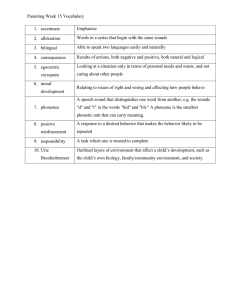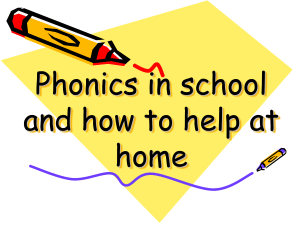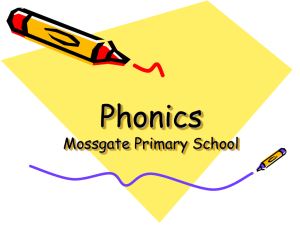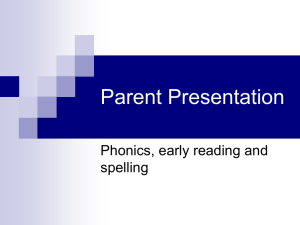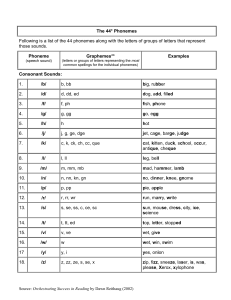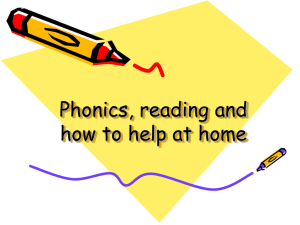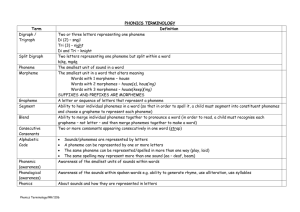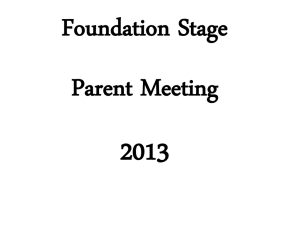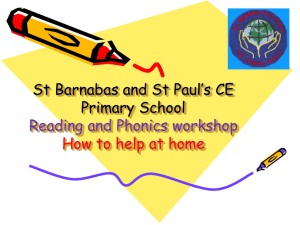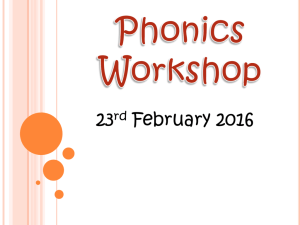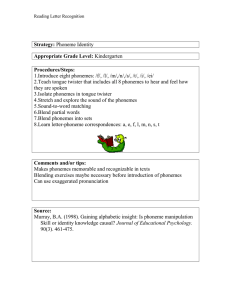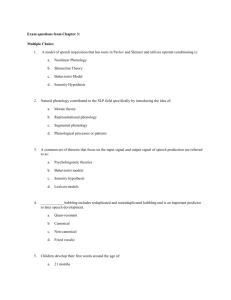Phonics Info - West Lakes Academy
advertisement
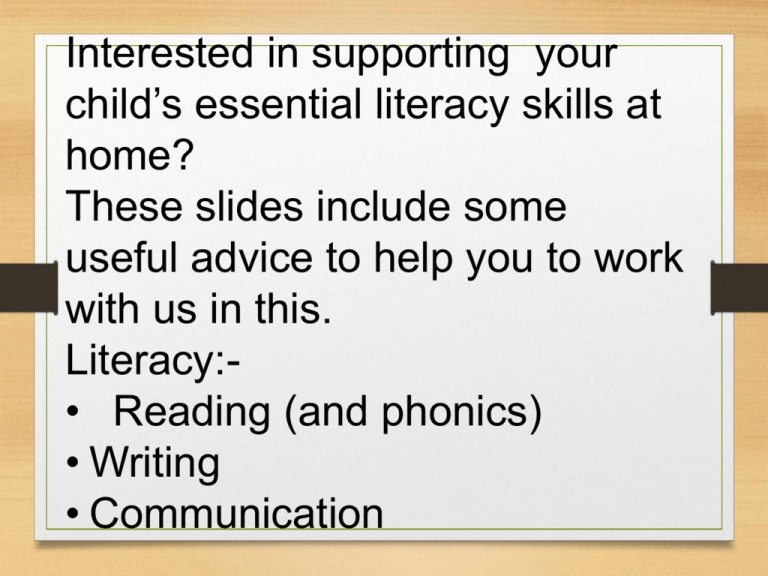
Interested in supporting your child’s essential literacy skills at home? These slides include some useful advice to help you to work with us in this. Literacy:• Reading (and phonics) • Writing • Communication Better literacy skills means better progress and achievement across all subjects. • Most important things – • Talking and listening • Reading with your child • Highlighting interesting examples and the usefulness of reading, writing and communication skills in the world around us. You could also introduce language games, quizzes and competitions… • PHONICS • Support correct pronunciation of sounds. • Support a wide, varied and appropriate vocabulary. • We all need to use the same language at home and at school. • Little and often is the key. Does not have to be formal. • Link it to your child’s interests. PHONEME • The smallest unit of sound in a word. • There are 44 phonemes that we teach. The 44 phonemes /b/ /d/ /f/ /g/ /h/ /j/ /c/ /l/ /m/ /n/ /ng/ /p/ /r/ /s/ /t/ /v/ /w/ /y/ /z/ /th/ /th/ /ch/ /sh/ /s (je)/ /a/ /e/ /i/ /o/ /u/ /ai/ /ee/ /igh/ /oa/ /ew/ /oo/ /ar/ /ir/ /or/ /er/ /ow/ /oi/ /air/ /ear/ /ure/ GRAPHEME • Letters representing a phoneme e.g. c ai igh Children need to practise recognising the grapheme and saying the phoneme that it represents. BLENDING • Recognising the letter sounds in a written word, for example c-u-p and merging or ‘blending’ them in the order in which they are written to pronounce the word ‘cup’. Encourage blending words with single phonemes and then move on to …. • DIGRAPHS – where 2 letters make 1 sound ll ss zz oa ai • TRIGRAPHS – where 3 letters that make 1 sound igh dge Phoneme identification activities – you could try this with words your child reads incorrectly. Have a go with the words below: • shelf • dress • sprint • String Did you get it right? • shelf = sh – e – l – f • dress = d - r - e – ss = 4 phonemes = 4 phonemes • sprint = s – p – r – i – n – t = 6 phonemes • string = s – t – r – i – ng = 5 phonemes TRICKY WORDS • Words that are not phonically decodeable • e.g. was, the, I Words like these still use graphemes to represent sounds – phonics- but less frequently. Many of these words are on the Catch All Spellings Chart and it might be useful to practise spelling and reading these words to learn them. The more unusual graphemes: I the come of any because woman could you through sure walked more thought does young four bhaji who badger table gnat, machine rhino scent.,castle regime, collage, revision special, sure, schedule, pension, tissue, passion, clothes, xylophone mosque picture called cough ghost, guest, league laugh great, rein,eight,chalet,they. bear. Their, where. half,are,laugh, heart ,said,says,frends people, police,piece zero,really, here,we’re verandah, little, thorough, colour, metre, sulphur earth,were orange,build,gym height, eye,tries, buy because, cough goes, though bouy flu fruit tour plough Now you have the knowledge…. • Help your child to know all of the phonic sounds and spellings for them – many sounds have multiple spellings. • Read as much as possible with your child and yourself when your child’s around to show that you value reading. • Lots and lots of encourage and praise –a good guess is a good start and usually part of the word is being spelt or read correctly so praise that. • Ask for information from the school if you want to know more. Useful websites • www.parentsintouch.co.uk • www.bbc.co.uk/schools/parents • www.jollylearning.co.uk/ • www.focusonphonics.co.uk/ • www.syntheticphonics.com
